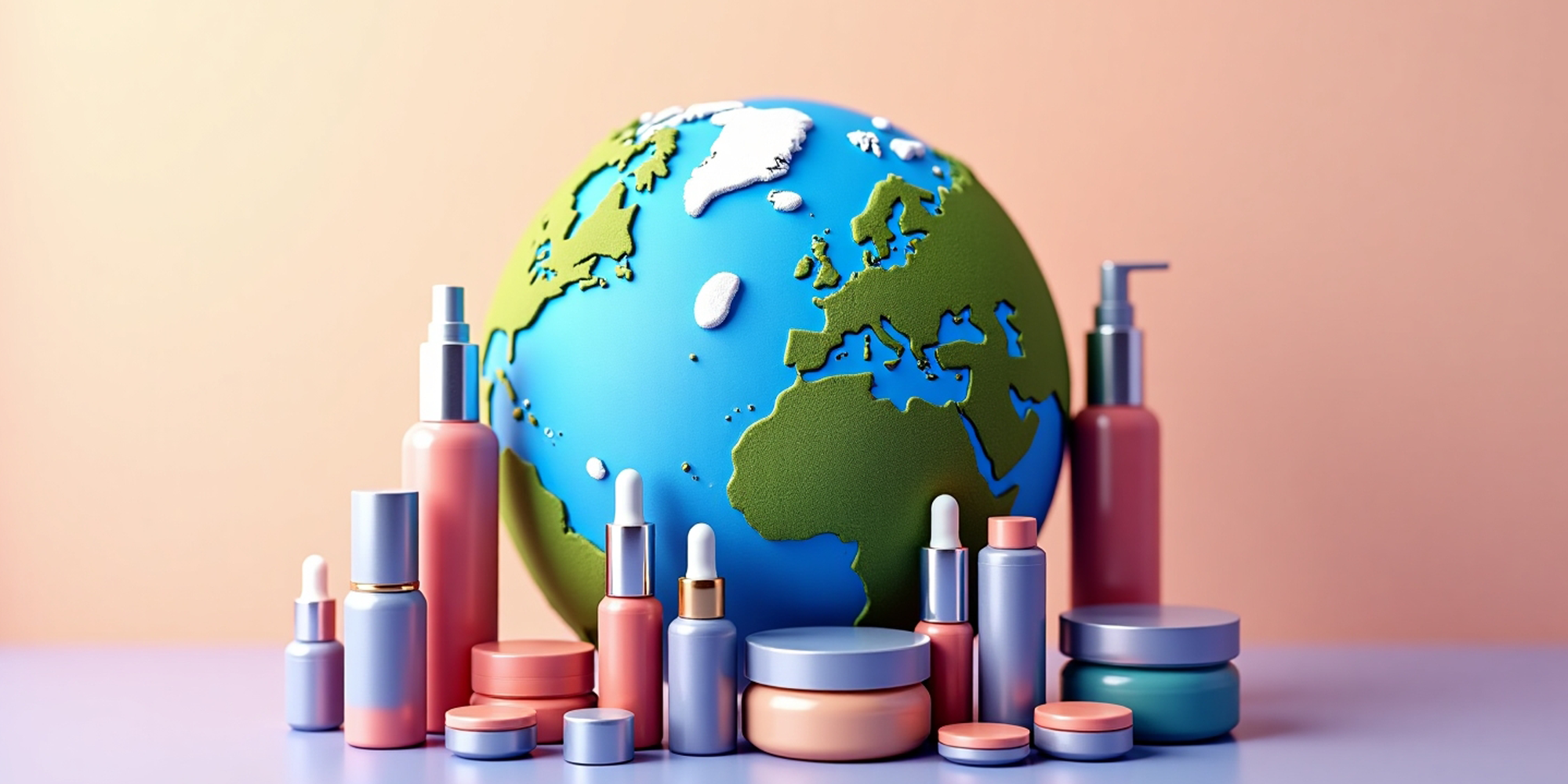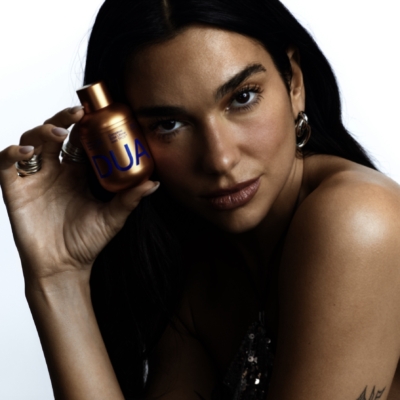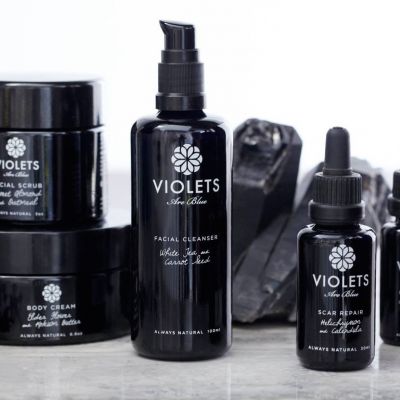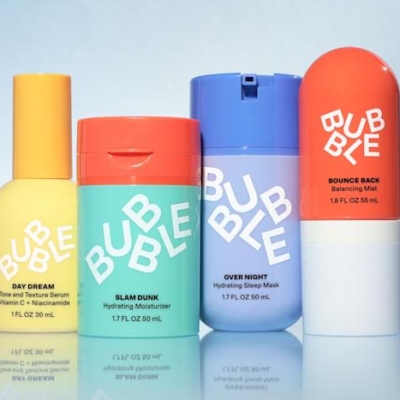
The Beauty Brands Standing Firm On Sustainability Even As They Face Heightened Costs
As beauty brands come under mounting cost pressures due to economic shakiness and tariffs, which President Donald Trump has set at 10% for goods imported to the United States from most countries in the world and 30% on goods imported from China, at least for now, sustainability could become a second-order priority—or lower—for many of them.
For this edition of our ongoing series posing questions relevant to indie beauty, we’re asking 20 founders and executives, the following: How do you view your sustainability efforts today? What changes are you making to them, if any, and why? Ultimately, what do you think this period will mean for sustainability in beauty?
- TIM HOLLINGER Co-Founder, Bathing Culture
We’re doubling down, even when it’s tough. Truly environmentally friendly decisions have always been expensive, and right now they’re more painful than ever. Some of our core organic ingredients have doubled or tripled in price. We stocked up where we could ahead of the latest policy shifts, but, like most small brands, we couldn’t cover it all.
Still, we’re holding the line. With the current administration rolling back environmental protections, many consumers are feeling powerless. We believe brands have a responsibility to offer real agency, not just marketing spin. That means backing up sustainability claims with lab results, being transparent about sourcing and refusing to cut corners, even when it costs us.
It’s frustrating to see less sustainable products sell at a premium with no transparency behind them, but we’re not here to win on volume or vague vibes. We’re here to build something lasting. Trust, clarity and environmental integrity aren’t just talking points for us. They’re the foundation for Bathing Culture.
- Lindsey McCoy Co-Founder and CEO, Plaine Products
At Plaine Products, sustainability is fundamental to our business model, not a marketing tactic. Our circular model places value on packaging, and we cover the cost for customers and wholesale partners to return empty bottles for washing and reuse. As aluminum prices rise, our reusable bottles become even more valuable, reinforcing the long-term financial and environmental benefits of our model.
Brands with surface-level sustainability commitments may scale back in response to economic pressure, revealing those efforts as largely marketing-driven. In contrast, companies like ours, where sustainability is deeply embedded, are better positioned to weather volatility.
Not only can we maintain pricing by avoiding the rising costs of virgin materials, but our model also resonates more with consumers seeking meaningful, practical solutions. And while sustainability isn't a marketing tool, having it as a marketing edge continues to be valuable to set us apart in this highly competitive and crowded space.
- SAHAR ROHANI Co-Founder and CEO, Soshe
In 2024, we diversified the majority of our primary packaging to Europe and Asia, excluding China. Our intention was to reduce lead times and minimize our footprint by optimizing shipping routes and production proximity to our fillers. We’re also closely watching regulatory shifts, particularly in the EU, where by 2030, sustainability claims and requirements will be a lot stricter.
It’s probably very tempting for brands to deprioritize sustainability in the short term, but it’s still possible to make mindful, cost-effective choices if you're willing to do the work and commit a higher upfront investment for long-term benefits. Ultimately, brands that build responsible supply chains now will be better positioned for whatever is coming next.
- JILL ROWE Founder, Cultivate Apothecary
I truly believe that, if we did not grow the majority of ingredients ourselves and didn’t continue to be a primarily insourced brand—pretty much everything we do is in-house—we would have not made it to this point, and we would not be in business a year from now. This is a very tough situation we are all being faced with, and I don't think we've seen the worst of it yet.
I truly don't think we could be any more sustainable than we already are. What I am seeing and likely will continue to see is a significant increase in the cost of essential oils. We work with very reputable, strategic companies that source the best organic oils, but I have seen over the last year a major increase in pricing on some items. We have had to find alternative, but still reputable sources for some of our oils, and I am grateful that I have done that work now as I can imagine I will continue to see pricing increases that will affect our profit margins.
I don't see myself increasing our prices on our products as that's just further penalizing the customer in a time when their cash flow is already tight. As far as what it will mean for the industry itself, I think we will see more and more small business owners choosing to close rather than continue to not only see their profit margins shrink, but know that their efforts to continue on may not give them the desired end result. It may just not be worth it for them both financially or psychologically to continue.
I also think that brands that have taken on a lot of financial backing will have to be extremely financially strategic to weather what is coming and factor in a multi-year plan for holding steady.
- JACK JIA Founder and CEO, Musely
At Musely, sustainability isn’t a buzzword, it shapes how we build a smarter, more economical and customer-centric business. Our focus has always been on operational efficiency, and many of our sustainability efforts double as meaningful operational improvements.
We’ve continued investing in initiatives where sustainability and business value go hand in hand. For example, many Musely patients have multiple prescriptions. We used to ship those individually, but, by consolidating them into a single shipment, we’ve significantly reduced packaging waste while improving operational efficiency.
That shift required thoughtful updates to our compounding process, EPR systems and logistics, but the payoff is clear: a better patient experience, 3X to 5X reduction in packaging and resource use, and millions in annual savings, all while significantly lowering our environmental footprint.
It’s a win for the environment and for the business, and we’re applying that same lens to future initiatives. In a time when beauty brands are being forced to make tough trade-offs, we believe sustainability that’s rooted in smart operations will not only survive, it’ll lead.
- TRACEY HICKS-KEARSE Founder, CEO and Chief Chemist, Acarre
The current economic climate, exacerbated by tariffs and uncertainty, presents challenges for maintaining sustainability initiatives. However, Acarre remains committed to its sustainability goals, albeit with strategic adjustments.
While sustainable materials and processes often come at a higher cost, we have negotiated better terms with suppliers to mitigate these expenses. The cost difference can range from 10% to 20% higher for sustainable options.
We have prioritized efforts that offer the most significant environmental impact such as sustainable packaging. Other initiatives like carbon offsetting have been temporarily reduced to manage costs.
Our belief is that sustainability will remain crucial in the beauty industry. However, the current period may slow progress as brands navigate economic pressures. We anticipate a renewed focus on sustainability once financial stability returns.
- Reginaldo Torres Founder, Dabalash
I believe it’s a matter of planning for the short, medium and long term. We’ve been working toward B Corp certification for the past two years, which has helped us implement a solid sustainability framework.
Of course, we recognize that cash flow and profitability are core priorities for most businesses, and those areas are often the first to be impacted by rising costs. However, we view profitability and positive cash flow as outcomes of consistent planning, adjusting and balancing operations across the business.
For us, the process of working toward B Corp certification has embedded sustainability both environmental and community-focused into our company’s DNA without losing sight of revenue and financial health.
One key lesson we learned during the pandemic is that a “just-in-time” inventory model is too risky and costly, especially for critical raw materials. That’s why we now maintain several months’ worth of inventory to ensure production stability, reduce stress and maintain focus on long-term goals, including sustainability.
- GLYNN POGUE Co-Founder, Blue Water Girls
Sustainability remains a top priority for us because it continues to be a top priority for our customers. Even as the industry faces cost pressures from tariffs and broader economic uncertainty, we’ve made a conscious decision to stay committed to sustainable practices across our supply chain. That includes using sustainable materials in our packaging and working with local manufacturers whenever possible to reduce our carbon footprint.
Yes, there is a cost difference. Sustainable packaging and localized production often carry a higher price tag, but our customers understand and value that investment. They’re informed, intentional shoppers who are willing to support brands that align with their values.
We believe this period will be a defining one for sustainability in beauty. Consumers are increasingly demanding transparency, not just in ingredients, but in business practices, sourcing and cost structure. We've seen a rise in brands openly sharing behind-the-scenes details through social media and email marketing, especially in the masstige and prestige categories. The response is seemingly positive, which signals to us that sustainability and transparency are not just trends, they’re long-term expectations.
At Blue Water Girls, we view this moment not as a reason to pull back, but as an opportunity to deepen trust with our community. Sustainability isn’t a nice-to-have, it’s core to how we build, communicate and grow.
- NICHOLA GRAY Co-Founder and CEO, Kate McLeod
For us, sustainability isn’t an add-on, it’s built into the core of our product. Kate McLeod creates solid body care that melts nature’s most nourishing ingredients directly into the skin. We’re best known for The Body Stone Moisturizing Lotion Bar, which deeply nourishes dry skin with its concentrated cocoa butter formula. By removing water from our formulas, we’ve eliminated the need for plastic packaging, one of the beauty industry’s biggest sources of waste.
Our solid format also reduces shipping weight and conserves resources, minimizing our carbon footprint while offering a high-impact moisturizing experience. We manufacture locally in New York’s Hudson Valley, which further reduces transportation-related emissions and allows us to maintain tight control over quality and sustainability practices.
That said, we’re not immune to the pressures many brands are facing. While we haven’t changed our sustainability efforts, we are seeing rising costs, particularly in raw materials and components like our reusable/refillable bamboo storage containers, which are currently sourced from China.
I can understand why brands without sustainability embedded into their products may need to make tough calls as margins tighten. This moment reinforces the need for sustainable practices to be intrinsic to the product itself because that’s when they’re most likely to endure.
- LENA CHAO Founder, Clean Circle
Sustainability has never been a marketing angle, but the foundation of our brand. I started Clean Circle because I saw firsthand how beauty waste impacts communities, specifically developing Asia countries, where much of the world’s discarded packaging ends up. So, when we talk about sustainability, we’re not talking about it in abstract terms, it’s more personal.
Of course, sustainability comes with cost challenges. Ethically sourced raw ingredients, post-consumer recycled packaging, and smaller production runs are often 20% to 50% more expensive than conventional options, but we’ve stayed intentionally lean so we can reinvest in better materials and more conscious manufacturing.
I think this moment is forcing brands to make a choice: Are you serious about sustainability, or was it just for show? Consumers are paying attention. How do we know they are? Because we launched a vox pop style Sustainable Beauty Chat, and we’re out there asking them! Consumers ask better questions, have more intentions when purchasing and can tell when something doesn’t add up. The brands that survive this moment will be the ones that have always put sustainability at the center.
For us, we are optimistic that we’ll hold steadfast if we stay true to our business fundamentals. Sustainability is the reason our community trusts us. And, in times of change, trust is the most valuable currency a brand can have.
- Ksenia Zaytseva Co-Founder, Bur Bur
At Bur Bur, sustainability is a fundamental part of how we operate. Despite the current economic pressures and rising costs due to tariffs, we have not compromised on our sustainability commitments.
We do our absolute best to do right by the planet and our fellow humans. Every decision we make is intentional, right down to the adhesive used on our labels to ensure our packaging is truly recyclable. We constantly look for ways to reduce our environmental footprint, even when it's difficult or more expensive.
That commitment comes at a real cost. For example, our brushes are handmade in Korea using ethically and sustainably sourced boar bristles, a byproduct of the food industry. With the current economic climate and high tariffs, we could cut our costs in half by switching to less responsible sourcing, but that would contradict overall brand ethos and what we believe in. Instead, we’ve chosen to absorb those costs and stay true to our values, even if it impacts our margins.
The reality is many independent beauty brands are being forced into tough decisions right now. Sustainability is expensive, and for small businesses without deep financial cushions, it can feel out of reach. It’s honorable to prioritize sustainability, but it’s also a privilege.
We shouldn’t shame smaller brands for making compromises during these times. It’s not always about a lack of values, but a lack of resources. The responsibility for environmental progress shouldn’t fall disproportionately on the smallest players.
Ultimately, this period will highlight a hard truth: real sustainability in beauty needs systemic support. Without shifts in regulation, sourcing infrastructure and industry-wide accountability, sustainability will continue to be seen as a luxury rather than a standard—and that needs to change.
- CHRISTIN POWELL Co-Founder, Kinship
Sustainability remains a core priority for Kinship, even as economic pressures mount. While cost increases, particularly due to tariffs, have impacted raw materials and packaging, we've maintained our commitment to sustainable sourcing and eco-conscious production such as transitioning out of plastic and into recyclable glass components in 50% of our collection in 2024 and maintaining a minimum of 50% PCR in our plastic packaging.
Rather than scaling back, we're optimizing. For example, we've transitioned to more efficient supply chain partnerships, reducing waste and transportation emissions while keeping costs manageable. This period will likely redefine sustainability in beauty, not as an optional initiative, but as a necessary long-term investment for brand resilience.
- ZEPHA JACKSON Founder, Standard Procedure
We approach sustainability as a living and breathing part of the organization, not a marketing headline. Our focus is on making considered, long-term decisions, prioritizing product safety, durability and responsible manufacturing practices, all in the context of our ever-changing world. All of our products are made in Australia in our family-owned factory, where we control the process from start to finish and avoid overproduction.
We don’t overclaim or greenwash. Instead, we’re working every day behind the scenes to make better choices, whether it’s reducing unnecessary packaging, trialing refill formats or investing in more durable, reusable formats like our keychain sunscreen. For us, sustainability isn’t a campaign, it’s part of building something that lasts.
Sustainability is top of mind with all the new product development we’ve got in the pipeline.
I think we’ll see a broader shift from overpromising to more practical, transparent approaches. Consumers are smart. They’re looking for integrity, not a marketing spin. Growing brands like ours need to earn that trust with actions, not slogans.
- Kate Chen Founder, Akar Skin
Sustainability isn’t a trend for us. It’s foundational to how we formulate, package and operate. Even as we navigate economic pressure and shifting costs, we’re choosing to absorb those increases for now because compromising on our values isn’t something we’re willing to do.
That said, we’re being smart about how we manage impact, revisiting sourcing efficiencies, optimizing shipping and continuing to work with manufacturing partners who share our commitment to sustainable practices.
Sustainable materials and processes often do cost more—sometimes significantly—but we view them as part of our long-term investment in brand trust and environmental responsibility. We believe this period will separate brands that see sustainability as a checkbox from those for whom it’s a core principle. Our hope is that the industry comes out of this more aligned around innovation and accountability, not less.
- JASMINA AGANOVIC Founder, Future Society
We have always built around a strong supply chain strategy and began preparations for this potential scenario over a year ago. We believe this moment will create a sharper divide between surface-level greenwashing and brands with real integrity, and we aim to be in the latter.
The reality was that sustainability never had a clear or smooth path regardless of sourcing opportunities, so it has always been a resourcefulness exercise.
- HEATHER ROGERS Founder and Dermatologist, Doctor Rogers
Sustainability has always been a core value for us, not a trend or marketing tactic. Even with current cost pressures, I’m committed to staying the course. My formulas are made with the best ingredients, not the cheapest, and our packaging is cutting edge sustainable luxury. These choices cost two to three times more than conventional options, but it is the ethos of the brand, required to meet our customers’ expectations and my own.
Like everyone, we’re navigating tariffs and limited packaging availability, and we may have to raise prices, but we are trying hard not to. It’s just too early to say. What I do know is this: This period will separate brands. Some will quietly abandon sustainability for a better margin. Others will continue to elevate skincare with products that are effective, clean and responsible. The consumers who care will notice.
- MARISSA ABRAHAM Head of Marketing, LilyAna Naturals
LilyAna Naturals remains committed to sustainability despite economic pressures, focusing on eco-friendly ingredients and packaging. While sustainable materials can increase costs, we believe consumers value these efforts, and sustainability will continue to be a key priority in beauty.
We’re fortunate not to be pressured to compromise on our packaging right now, and with multiple sustainable options available, we can continue prioritizing eco-friendly choices.
- CLEO DAVIS-URMAN Co-Founder and CEO, Barrière
Barrière was founded from the lack of accessibility, transparency and sustainability in the wellness industry, three pillars that remain at the core of the business today. With product prices ranging from $10.39 to $35.20, we strive to maintain an accessible price point without sacrificing the quality or efficacy of our products.
We are committed to offering products that are formulated with 100% plant-powered and vegan ingredients. As we continue to expand, we’re mindful of the impact we have on the environment and are working to integrate more sustainable practices into our processes wherever possible.
- DANA STEWART Founder, Mad Hippie
Sustainability is a cornerstone of Mad Hippie, and we are not reducing our efforts in any way. We are continuing to use sustainable packaging—glass and sustainably harvested sugarcane bioresin—and to offer free recycling of all of the hard to recycle components like dropper tops and treatment pumps. That said, many companies are being hit hard by tariffs in this interconnected supply chain environment and are having to make tough choices when cutting costs.
- Ada Chen Founder, Erleia
Erleia remains committed to our sustainability efforts. We are looking at options like diversifying our packaging materials and sourcing to manage costs. We know that many of our peers are doing the same, and we hope to see the industry maintain its commitment to sustainability.
If you have a question you'd like Beauty Independent to ask beauty brand founders and executives, send it to editor@beautyindependent.com.






Leave a Reply
You must be logged in to post a comment.